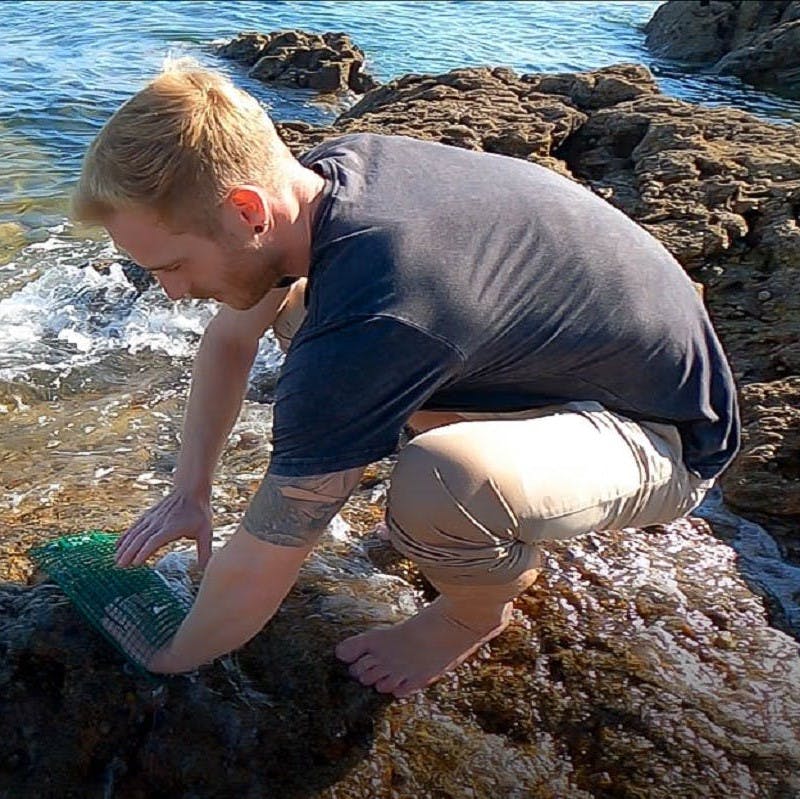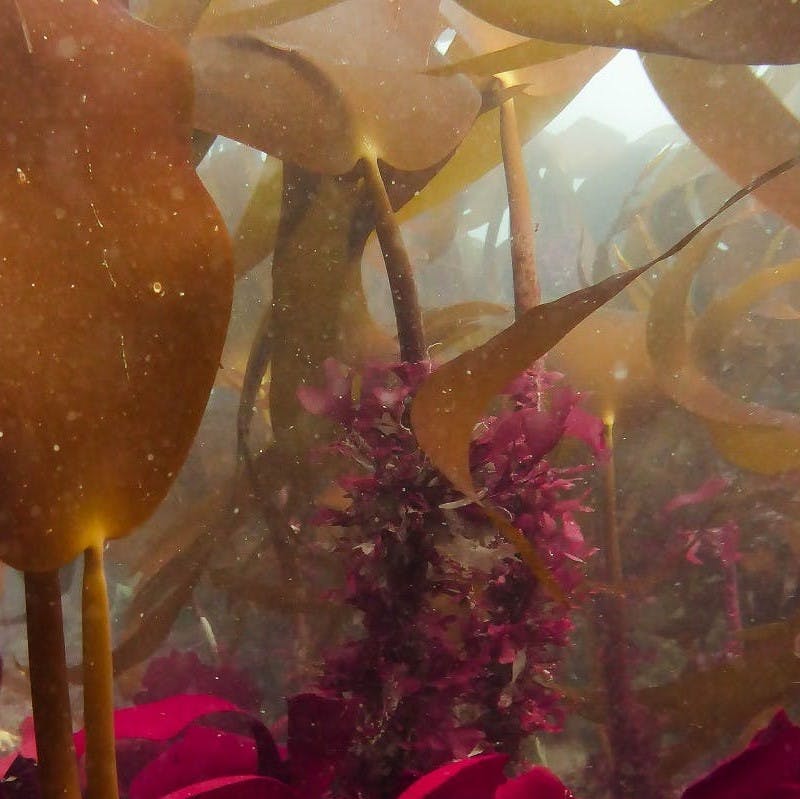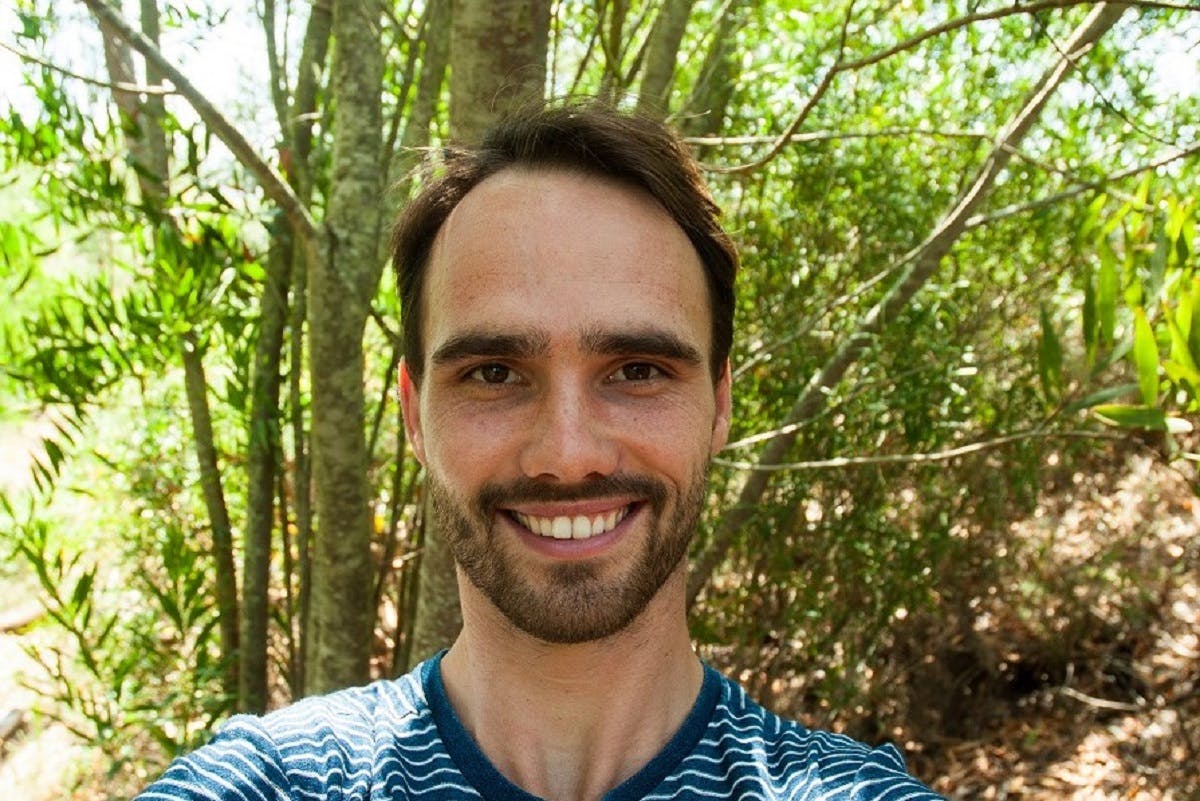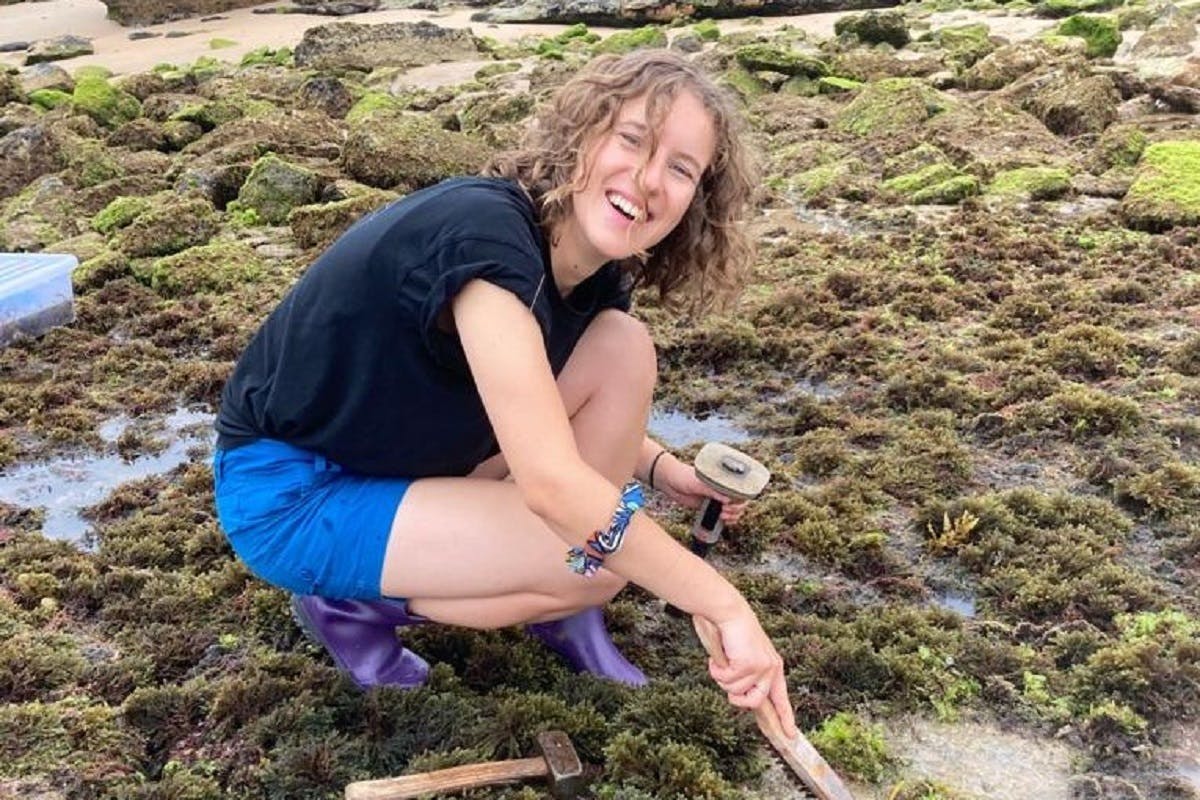- Budget spent: £1,722
- Status: Implemented
Seaweeds are of immense value for marine ecosystems. Kelp, the largest of them all, form spectacular underwater forests that provide habitat for fish, clean the water and sequester carbon. Unfortunately, large swathes of these subaquatic forests have disappeared from the coast of many European countries. Although many factors appear to be contributing to this trend, there is still a lot we don’t know about the ecosystems engineered by seaweeds and this makes it difficult to carry out effective conservation and restoration work. We have partnered with SeaForester to make large scale restoration of seaweed forests along the coast of Portugal a reality. To start the process we are implementing a kelp restoration trial.
Project Timeline
Kelp restoration trial
Kelp are large brown seaweeds belonging to the order Laminariales and are widely known for the impressive subaquatic forests that they form. In order to bring back these kelp forests to the areas from which they have disappeared it is important to test and refine available techniques.
This project involves carrying out a trial to test the “spore bag” seeding technique to bring back golden kelp (Laminaria ochroleuca) to the coast of Cascais, Portugal where it used to be very abundant. Reproductive structures of the plant are collected from donor populations, placed in mesh bags and attached to the rocky reef identified for restoration. The idea is for the spores to be released from the reproductive structures, to settle on the underlying bedrock and create new patches of kelp forest.

Learn more about the context behind this project
Disappearing seaweed forests
The world’s shallow coastal areas, where sunlight penetrates, are the cradles of the ocean. Here seaweed forests grow supporting a rich and diverse assemblage of marine fauna and flora by providing highly productive three-dimensional habitats. In addition to reducing the loss of biodiversity in oceans, kelp forests also provide ecosystem services by reversing acidification, an important part of climate change mitigation.
Unfortunately, European seaweed forests are disappearing at an alarming rate. Although we lack the data to figure out the actual causes for this decline, these are likely to be important drivers in many areas:
- Water pollution
- Climate change affecting water temperatures
- A build up of sediment as a result of both human and natural causes
- Increases in herbivory rates due to overfishing and its impact on coastal ecological communities
- Increased storm intensity

Pioneering seaweed restoration work in Europe
Unlike land-based deforestation which has received a lot of attention, the loss of marine forests tends to go mostly unnoticed. This may be due to the fact that the underwater-world is out of sight for most of us and its deterioration is therefore not as obvious. As result, there are still very few seaweed restoration projects in Europe and there is a great need to develop greater know-how in this area. This is where our partnership with SeaForester comes in to restore these 'forgotten forests'.
SeaForester is an initiative that aims to reverse the alarming disappearance of seaweed forests in the world in order to safeguard the oceans’ vital role of carbon sequestration, maintaining fish stocks and securing the planet’s wellbeing. Along the coastline of the municipality of Cascais they are pioneering the work to identify the reasons for the decline in seaweed populations and to test seeding techniques. Therefore this project will not be carried out in isolation but will be integrated with other efforts to restore the area with community involvement from Club Naval de Cascais (CNC).
Thanks to our members we are able to get this initial research project off the ground, where previously there's been difficulty securing funding. With this support, action-based research like this can snowball into large-scale restoration of kelp forests - our ultimate aim.

Sources & further reading

the team behind the project

Tiago de Zoeten, Conservation Biologist at Mossy Earth

Jan Verbeek, Marine Biologist at SeaForester

Inês Louro, Marine Biologist at SeaForester
Sources & further reading

- “Status, trends and drivers of kelp forests in Europe: an expert assessment” - Biodiversity and Conservation
- “The role of kelp species as biogenic habitat formers in coastal marine ecosystems” - Journal of Experimental Marine Biology and Ecology